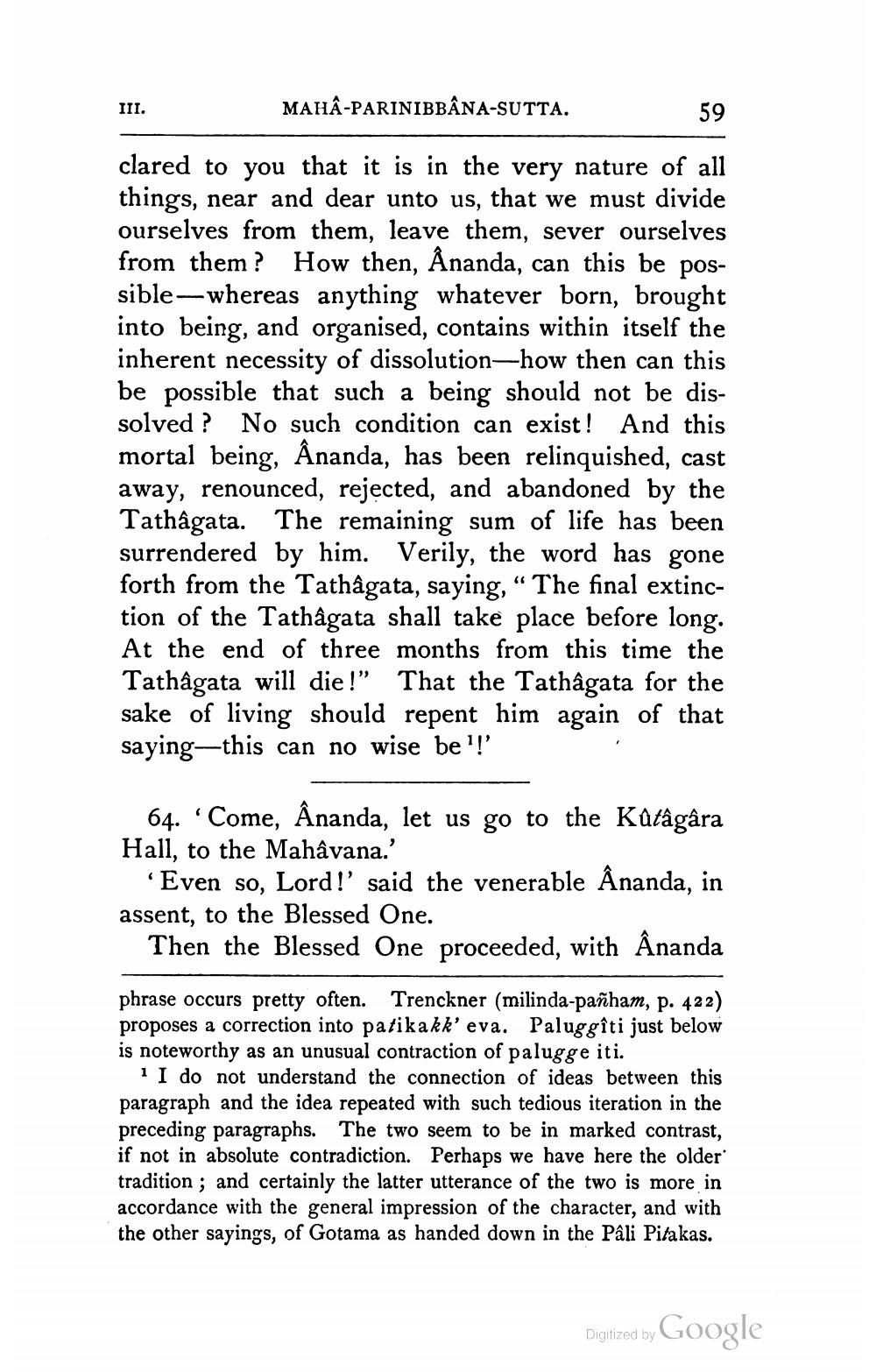________________
III.
MAHẬ-PARINIBBÂNA-SUTTA.
59
clared to you that it is in the very nature of all things, near and dear unto us, that we must divide ourselves from them, leave them, sever ourselves from them? How then, Ånanda, can this be possible - whereas anything whatever born, brought into being, and organised, contains within itself the inherent necessity of dissolution-how then can this be possible that such a being should not be dissolved ? No such condition can exist! And this mortal being, Ananda, has been relinquished, cast away, renounced, rejected, and abandoned by the Tathagata. The remaining sum of life has been surrendered by him. Verily, the word has gone forth from the Tathagata, saying, “The final extinction of the Tathậgata shall take place before long. At the end of three months from this time the Tathagata will die!" That the Tathagata for the sake of living should repent him again of that saying—this can no wise be '!'
64. 'Come, Ânanda, let us go to the Kutâgâra Hall, to the Mahâvana.'
'Even so, Lord!' said the venerable Ânanda, in assent, to the Blessed One.
Then the Blessed One proceeded, with Ânanda
phrase occurs pretty often. Trenckner (milinda-pañham, p. 422) proposes a correction into patika kk' eva. Paluggiti just below is noteworthy as an unusual contraction of palugge iti.
1 I do not understand the connection of ideas between this paragraph and the idea repeated with such tedious iteration in the preceding paragraphs. The two seem to be in marked contrast, if not in absolute contradiction. Perhaps we have here the older tradition; and certainly the latter utterance of the two is more in accordance with the general impression of the character, and with the other sayings, of Gotama as handed down in the Pali Pitakas.
Digitized by
Digitized by Google




